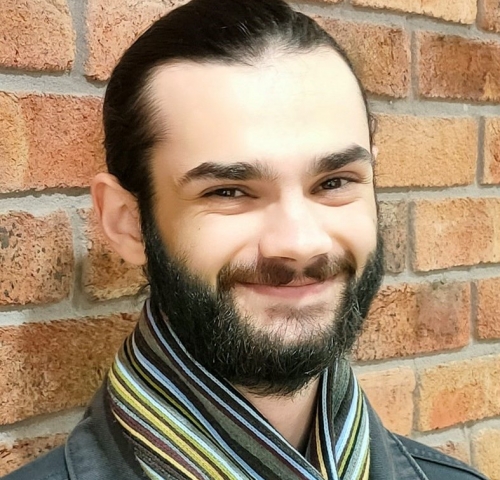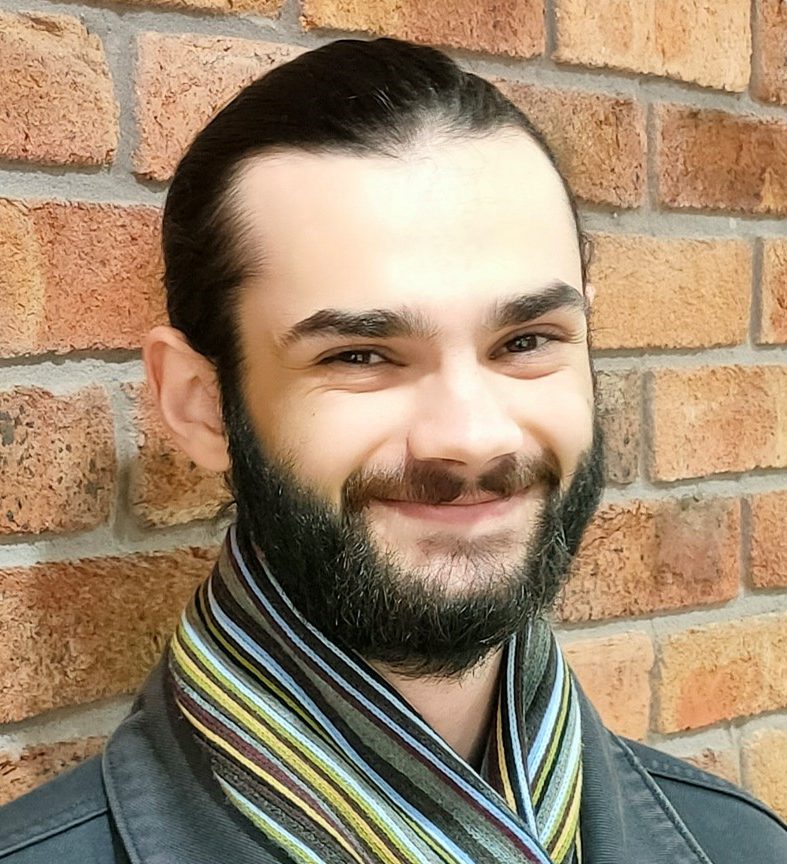
Josiah Murray
The University of Newcastle
Josiah Murray is an applied mathematics student at the University of Newcastle. His work in mathematics has primarily centred around the deformation of beams, especially in the context of railway systems. He has also diversified his studies, however, by taking on science projects. Josiah has recently seen success working as part of a small team for an industry client, conducting case studies on the 17 Sustainable Development Goals in the Hunter Region. Always looking for places to apply mathematics, he developed a heuristic model to evaluate the scoring criteria used in the case studies. Beyond his formal education, Josiah enjoys spending free time on some of the less scientific arts. Sometimes this is art itself: like drawing or painting, through which Josiah finds joy in portraiture. Other times it is the literary arts: The end of most of his days is a chapter from some classic novel (Anna Karenina comes highly recommended). What underpins it all, though, is merely the joy of learning something new.
Can you give me a quick rundown about the type of mathematics you are studying and its potential impacts for the broader community?
Generally, I introduce my studies to people by saying “I work with railways”. This isn’t necessarily true, but is a good reference point, I think. What I do is study solution techniques for partial differential equations. The equations I looked at during my bachelors – and will continue to look at in honours – are particularly relevant to railways though. The hope is that the solutions will inform the development of techniques for reducing vibrations from trains, which are starting to damage the track infrastructure and increase maintenance costs.
How did you get into mathematics/statistics/data science? Was there someone or something that inspired you to this field?
Not particularly inspirational, but I enjoyed it in high school. Fresh out of school, I was starting university with no clear idea of what I wanted to do. I knew I enjoyed mathematics but had a strong impression that you had to be a prodigy to be any good at it at a tertiary level (much less to then find a job with it). With that in mind, I started a combined Bachelor of Science/ Bachelor of Mathematics. Two years into the four-year degree, however, I discovered a few things:
• I do not like working in a lab. (80% of the science degree)
• There are many fewer jobs in science than I thought.
• There are many more jobs in mathematics than I thought.
• I do okay in university math classes.
So, I moved into just a Bachelor of Mathematics, to shorten my degree, get to honours sooner, and focus more on maths.
You received a Travel Grant to attend AMSI Summer School 2023. How important was this in terms of your ability to attend, fully participate in the program and meet others studying in similar fields?
The Travel Grant gave me 90% of what I got from the summer school. I couldn’t have attended the event in person, and whilst I could still have attended classes online, so much of the benefit can only be gotten face-to-face. A very big part of the summer school, for me, was getting to interact with students and professors from universities across Australia. Whilst this is technically possible online, there is nothing like sharing meals, and exploring a new city, for getting to know people better. (It is also a whole lot easier to pay attention in a face-to-face class…)
What was the most valuable part of the program for you?
It is hard to put a single most valuable part of the program. Certainly though, I could not have gotten the opportunity to meet people from all across Australia anywhere else. Hopefully, these will be friends I will have for years to come, meeting again at conferences or in travels.
In the long-term, what do you think are the benefits of having attended Summer School?
The people I came to know along the way, without a doubt.
Summer School included a special Careers Day program which aims to help give students an idea of the kinds of career paths available to maths graduates in industry and private sector research areas. Were you previously aware of the types of industry opportunities available to mathematical science graduates?
I was already reasonably aware of the jobs that were available to mathematical science graduates and already felt motivated and equipped to move into industry once I have finished my studies. However, I was interested to see the types of businesses that were represented on the Day. Most of the careers days, and other resources, I’ve been exposed, to have a strong bias towards the engineering and technologies sector. The AMSI Career’s Day, on the other hand, had a leaning towards finance and data analytics, showing again the diversity available for mathematical science graduates.
What advice would you give to someone who is considering applying for Summer School in 2024? Should they apply and why?
Apply. The experience is fantastic. Four weeks getting to experience a new mathematics and meeting new people from across Australia, is without question invaluable. It is also a low stress way to get some travel in.
Oh, also, bring walking/running shoes. Don’t be like me.
Where do you want the mathematical sciences to take you? Where do you see yourself in five, ten years’ time?
With so many options (some of which don’t even exist yet), and no current rush to decide, I am putting one foot in front of the other for now. Contenting myself with some uncertainty, working hard and just loving the learning.

